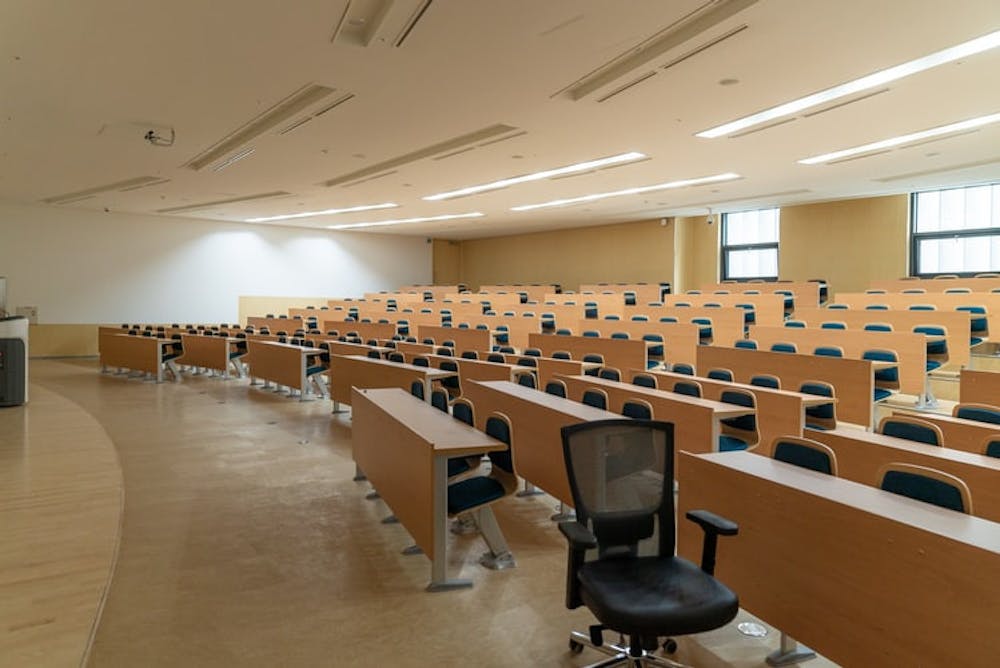The annual Board of Trustees meeting was held Wednesday, March 3 through Friday, March 5 where the AU administration representatives held a press conference to address COVID-19, plans for Fall 2021, and balancing the budget for FY2022 despite the financial strains due to the pandemic.
Marc Duber, Boards of Trustees Chairman, Dr. Fanta Aw, Vice President of Campus Life and Inclusive Excellence, Doug Kudravetz, CFO, Vice President and Treasurer, Peter Starr, Acting Provost and Chief Academic Officer, and Matthew Bennett, VP of Communication held the press conference to discuss the fiscal year (FY) budget for 2022 during the press conference on Friday, March 5.
For the first time in AU’s history, tuition will not be raised, along with no increase in residential hall rates says Trustees.The zero tuition increase policy for the Fall 2021 semester was first announced by AU President Sylvia Burwell on Feb. 22 in an email discussing plans to return on campus with in-person activities next year.
“I think it's a very responsible budget and as Mark [Duber] said, to balance it with no tuition increase was challenging but we got it done,” Kudravetz said.
COVID-19 plans for the upcoming fall semester were discussed at the meeting, as well as how procedures for continuing to combat the pandemic would fit into the budget. The university will continue to mobilize testing resources, and reportedly will spend $6 million for testing alone next year. Currently, the university has a deal with SHIELD T3 to carry out COVID-19 testing through saliva samples and results are available within 24 hours in most cases.
Representatives from AU administration further discussed how students would be prioritized, given that many families have been hit especially hard by the pandemic. According to Kudravetz, financial assistance for undergraduate students will be raised to $120 million in the upcoming fall semester.The FY2022 budget also includes an increase in funding for the Student Health Center and the Counseling Center for additional student support measures.
While the price for on-campus housing will not increase alongside tuition for the FY2022 budget, full residential housing will remain available on campus minus the reservation of one building for COVID-19 positive students. Furthermore, sophomores will have access to seven Living Learning Communities, some of which will be linked to schools such as the School of International Service, to programs like Community Based Research Scholars, in order to restore a sense of community lost during the virtual semester.“This is something we've wanted to do for a very long time and… it's going to be really important for our first year students who haven't had that on campus experience,” Starr said.
The university will reportedly continue to be dedicated to racial equity efforts as the upcoming school year approaches. In a memorandum for the Sept. 2020 Board of Trustees meetings, Duber wrote that “racial equity will be an ongoing priority for the board” and the representatives during the meeting said that they remained committed to this statement through several investments, including the new Equity and Title IX office.
While there was mention of the continued search for the Anti-Racist Policy Center director, there was no specific updates on any progress being made. There was also no mention of cutting the funding for AUPD, which has been a continued demand by students across campus as a measure of racial equity.
Importantly, Black Affinity Housing will still be offered in-person during the fall 2021 semester and much of the work for continuing the project will be done over the summer according to Bennett. The Affinity Housing option was first announced during a press conference in Feb. 2020 and Black students have been organizing for years to create a safe space on campus. However plans about the project were made unclear after the potential removal of Roper Hall was revealed in Oct. 2020. Nonetheless, Affinity Housing will continue to be in the works as Roper undergoes renovations and students return for in-person activities in the fall.
To make up for the $100 million financial loss, AU administration officials launched a "comprehensive initiative" that is projected to generate $500 million in revenue, which will be used for endowed chair programs and scholarship money.The specifics of the fundraising campaign remain vague, however, more details about the plan will be provided by May 2021 according to Bennett.
When asked what will be neglected from the budget that made the balance possible for FY2022, Kudravetz said that each department cut 5% from “non-essential costs”, however it is unclear what these costs entail. The hiring freeze will also continue for non-critical positions, although President Burwell said in her announcement about plans for the fall 2021 semester that the furlough will not be in place next year. “Everybody personally and institutionally took a hit,” Kudravetz said about the financial losses that the university, families, and faculty alike entailed this year due to the pandemic.
While the representatives of the administration and Board of Trustees emphasized their prioritization of students during the press conference, the financial strains on both the university and families due to COVID-19 will continue to pose challenges as the upcoming fall semester approaches.



